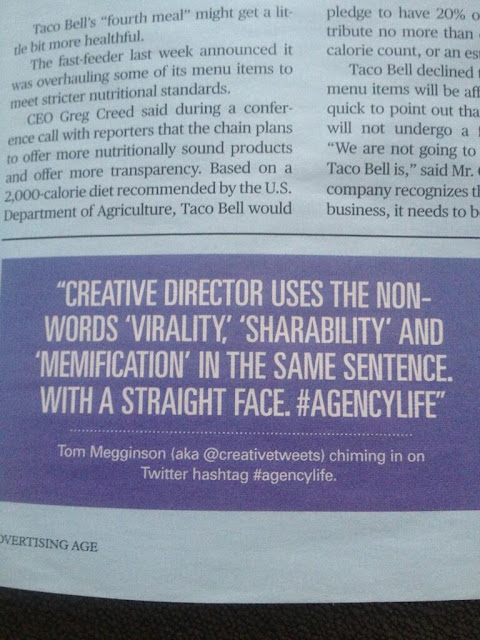If there's one thing that advertising people actually value, it's a brand. Especially if it's one of our own.
So it's no surprise that Åsk Wäppling, the Swedish owner of the advertising blog adland.tv, doesn't want other people using the term "Adland."
Adland is absolutely ancient in internet terms, having been established in 1996 when most ad people were still trying to figure out if the web was good for anything except free shock porn. A young Ms. Wäppling, under the pseudonym "Dabitch," instead saw the opportunity to create an online global ad archive and professional forum, which in this decade Brand Republic, Business Insider, and Fast Company have listed as one of the most influential in the industry. She even trademarked the name, several years ago. And he's been a mentor as I've fumbled my way into the ad blogosphere.
So you'd think it would be pretty clear that "Adland" = adland.tv. Especially among ad industry bloggers.
Apparently not. As you can see from the Google screencap above, venerable industry magazine Ad Age uses the term "adland," in a generic sense, to refer to the industry in several posts. I have no idea if they used it this way in print, years back, but online it definitely infringes on Dabitch's intellectual property. And she's let them know, many times.
Now other people are letting them know. When Ad Age posted "Adland seeks to hire veterans," Dabitch says she started getting resumes. After finding out they didn't mean THAT Adland, one vet let Ad Age know what he thought about the avoidable confusion:
 |
| Courtesy Dabitch |
Dabitch has written directly to Ad Age's legal heads, but after receiving what she characterizes as "nya, we won't" replies, she has taken to the court of social media.
She told me, "Now I tweet at them every time they use the word in a headline and I hope the responses take off."
Here's a recent example:
— Adland (@adland) May 6, 2015
Cheeky. But will it get Ad Age's attention now? (More importantly, will it get the attention of its readers and advertisers?) We'll see. Because there are a lot of important ad pros watching that little red TV.
















